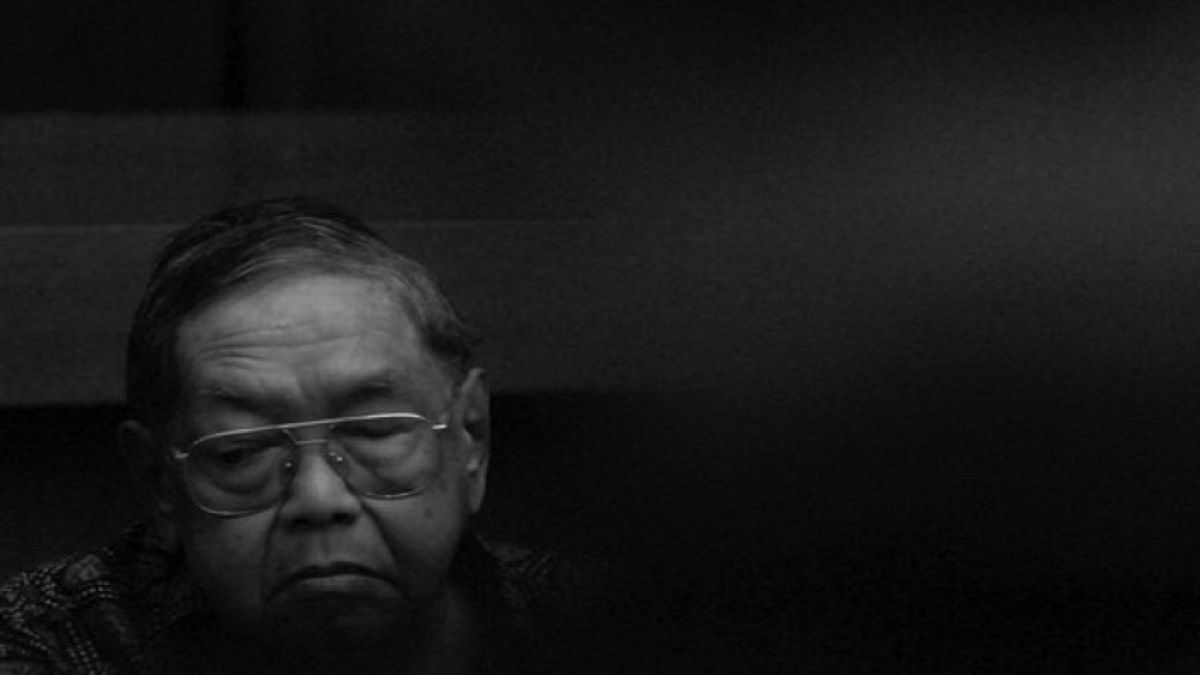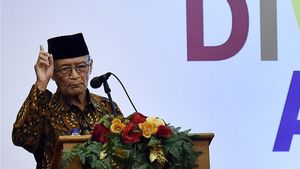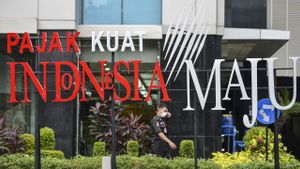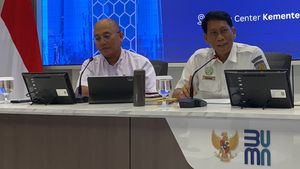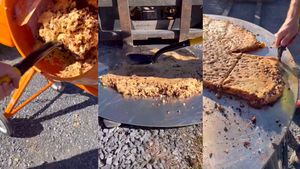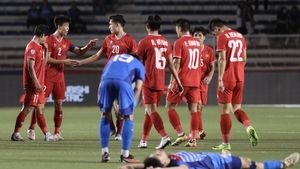JAKARTA - The National Strategic Project (PSN) of the Kedung Ombo Reservoir has left many scars. This development preserves the acquisition of land owned by the people. Thousands of people are affected. They were forced to lose their homes and land. That too with relatively small compensation. KH Abdurrahman Wahid (Gus Dur) was furious. As the leader of Nahdlatul Ulama (NU), he chose to oppose the New Order government (Orba). Gus Dur criticized the New Order government for taking people's land. Justice must be served, he thought.
The New Order government's ability to develop the country cannot be doubted. In the construction of the Kedung Ombo Reservoir, for example. The reservoirs, which are located in three regencies in Central Java – Sragen, Boyolali, and Grobogan – have various functions.
The reservoir is not only used for the procurement of a 22.5 Megawatt Hydroelectric Power Plant (PLTA). But also Kedung Ombo Reservoir is predicted to be able to meet the water needs of 70 hectares of rice fields around it. Everything is in accordance with the results of a feasibility study conducted by the relevant department. Funds have been prepared, as well as experts.
Construction began in 1985. The land required for the reservoir reaches 6,500 hectares. For the sake of sufficient land area, the government tactics. The owner of the power to use land acquisition plans to about 5 thousand heads of residents spread over 37 villages, consisting of seven sub-districts in three districts (Boyolali, Grobogan, Sragen).

They were forced and intimidated to move. That too with relatively small compensation. Some even did not get compensation. Therefore, many residents chose to survive and continue to demand justice.
“This then creates an imbalance in the Kedung Ombo Project. On the one hand, technical work matters are considered a top priority and are well coordinated professionally. But on the other hand, the social aspects of the project, such as land acquisition, compensation, and resettlement schemes, were handled carelessly and without consideration.”
“The development team, engineers and engineers simply assumed that cash compensation would convince everyone to find new land/places. Unfair treatment in the form of intimidation, arrest, interrogation, and physical pressure by military personnel is used to suppress compensation," said Frans Hendra Winarta in the book Pro Bono Publico (2013).
That said, compensation for land acquisition is actually very expensive. But what is accepted by residents is the opposite. The amount received is too small. It was rumored that land compensation according to the World Bank scheme reached Rp. 10,000 per meter2.
Then it was cut to Rp. 3 thousand. Surprisingly, the compensation that reached the residents was only Rp.250. The people protested. Even if the New Order government considers it lonely. In response, the New Order government began to play its role in guarding investment by perpetuating military power.

Residents who defend their land are intimidated. In fact, many of those who oppose the construction of the dam are categorized as part of the Indonesian Communist Party (PKI). Therefore, their ID cards are marked with former political prisoners. aka traitor of the nation. Even Suharto himself called the survivors: mbguguk ngutho waton (stone-headed).
“The results of this study by Elsam and the Lawyer Committee for Human Rights found many cases of human rights violations in the implementation of the program. In the Kedung Ombo dam project, the following human rights violations were found: First, there was no consultation conducted by the government in the land acquisition process.”
“In determining the price, the government unilaterally sets the price without hearing input from the public. Second, intimidation and terror against residents who are not willing to accept compensation and do not want to follow the government's offer to join the transmigration program. These survivors were labeled as dissidents and branded as members of the Indonesian Communist Party (PKI),” explained Nusa Putra in his book Reflections on the Streets (2015).
Gus Dur Condemns New OrderThe injustice of the New Order regime often provoked criticism from various national figures. Gus Dur, one of them. The General Chairperson of the Nahdlatul Ulama Executive Board (PBNU) for the period 1984-1999, previously known to be friendly with the New Order. However, Gus Dur's conscience was open by seeing the behavior of the government which sacrificed a lot of people in carrying out strategic projects.
Gus Dur was not afraid. He threw a lot of open criticism of the policies of the ruling regime. Included in the construction of the Kedung Ombo Reservoir. In that case, Gus Dur always sided with the weak and oppressed. He also supports many of the struggles of activists against the Kedung Ombo Reservoir project.
“My consistency is in upholding human rights. At first, I moved to prevent environmental damage caused by the greed of the rulers and the misery of the people. Like the case of the Kedung Ombo Reservoir in the past.”
“I, along with Father Mangun, Arief Budiman, and Gus Dur, joined in defending the rights of the villagers who were evicted for the sake of building the reservoir. I have known Gus Dur and have worked with him frequently since the late 1970s. Gus Dur is one of Indonesia's Islamic leaders who is an important link linking NGOs with Islamic groups," explained George Junus Aditjondro as written by Nurjannah Intan et al in the book Salahkah George Fights Corruption (2010).
He often goes directly to help residents. All forms of assistance were mobilized. From energy to materials. All of this is to restore the mentality of victims who are being intimidated by the regime in power. Gus Dur understood that there was something wrong with the Kedung Ombo Reservoir case. Moreover, there are rumors that some of the land confiscated by the government has actually been turned into a luxury golf course.

This evidence further strengthened Gus Dur's steps in condemning the arbitrariness of the New Order. He then organized activists, mainly those belonging to Non-Governmental Organizations (NGOs). They were asked to speak louder to the World Bank, which gave Indonesia a debt to build the Kedung Ombo Reservoir.
“Gus Dur suggested that a number of friends in the NGO (Non-Governmental Organization: NGO) write to the World Bank and outline their concerns and ask him to show greater responsibility in managing such projects. Although this letter was Gus Dur's initiative, the final form is slightly different from what has been described, because his words were harsher and he was personally critical of Suharto.”
"Therefore, Suharto demanded Gus Dur to apologize, and Gus Dur complied after he went to Suharto to talk about the letter. However, this incident made many critics of Gus Dur within NU openly question whether Gus Dur would later become a kind of wild cannon that would endanger the safety of all NU citizens," concluded Greg Burton in the book Biography of Gus Dur (2013).
*Read other information about HISTORY or read other interesting articles from Detha Arya Tifada.
The English, Chinese, Japanese, Arabic, and French versions are automatically generated by the AI. So there may still be inaccuracies in translating, please always see Indonesian as our main language. (system supported by DigitalSiber.id)
